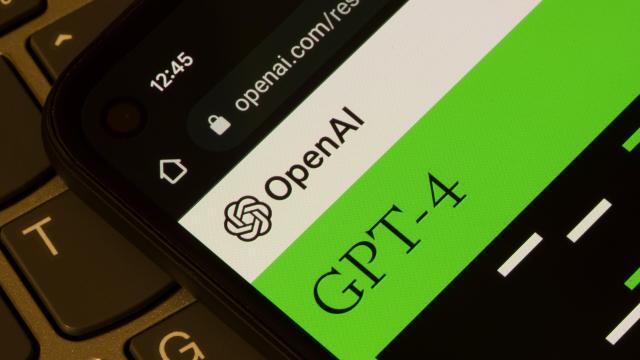OpenAI has shocked the world with ChatGPT-4, but now it has to win over the developers who will actually build the future of artificial intelligence.
The makers of the world’s most popular chatbot have plans to release major updates for developers on November 6th, making their product significantly cheaper to use through the addition of memory storage and vision capabilities to their developer model, according to an exclusive report from Reuters.
The artificial intelligence company unveiled voice and image capabilities in ChatGPT just weeks ago in September. “ChatGPT can see, hear, and speak,” said the company in a blog post, but just for consumers. OpenAI is trying to deliver those same features to developers, so companies can build artificial intelligence products that can see.
Memory storage is another addition OpenAI is allegedly unveiling at their first-ever developer conference in San Francisco. Reuters estimates this would theoretically slash costs 20x over for application makers, addressing a major concern for AI developers, who are likely spending a fortune building out these products.
OpenAI did not respond to Gizmodo’s request for comment.
Tech analyst and author of Stratechery Ben Thompson found the experience of speaking with ChatGPT “profound,” but the vision features left something to be desired from a consumer perspective. Perhaps the greater value comes in commercial uses; ie what companies can build with large vision language models that have a wide range of use cases. Vision AI presents opportunities to innovate in manufacturing settings, quality control cases, and medical fields.
OpenAI’s developer conference on November 6th, OpenAI DevDay, is a chance for the company to showcase new tools, and ultimately attract developers away from open-source competitors such as Meta’s Llama 2. Sam Altman admitted earlier this year that OpenAI’s plugins have not gained as much traction as he’d like.
The AI companies are competing in more ways than one. Meta showcased their vision AI just last month, by rolling out their own Ray-Ban smart glasses, which are integrated with Meta AI. The Information reported that OpenAI was working on their own hardware product with iPhone designer Jony Ive, but it is likely a long way away.
